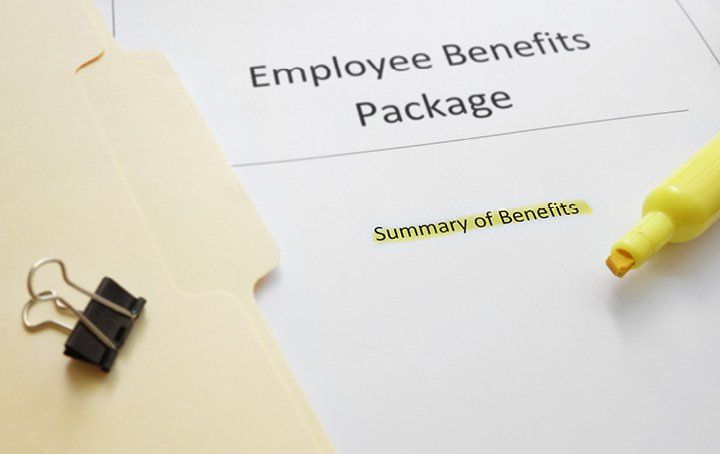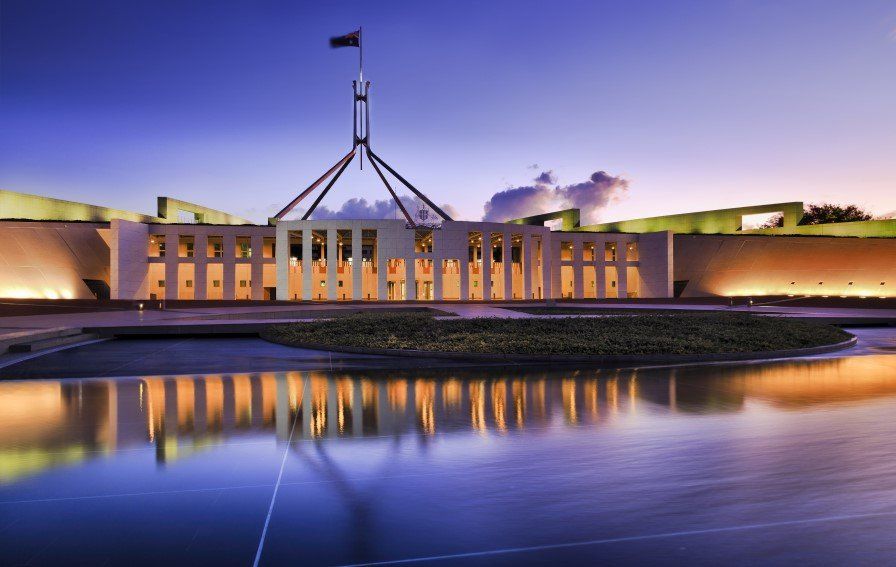Fringe Benefits Tax (FBT) Update 2023

The Fringe Benefits Tax (FBT) year ends on 31 March. We’ve outlined the hot spots for employers and employees.
FBT updates and problem areas
- FBT exemption for electric cars
- Work from home arrangements
- Car parking changes
- Mismatched information for entertainment claimed as a deduction and what is reported for FBT purposes
- Business assets personally used by owners and staff
- Employee contributions for FBT purposes and salary sacrifice
- Not lodging FBT returns
- Travelling or living away from home
- Housekeeping essentials
Important FBT issues
FBT exemption for electric cars
Electric cars represent a small but growing proportion of the new car market in Australia. To encourage Australians to make the shift, the Government has passed legislation that provides an FBT exemption for certain no or low emissions vehicles from 1 July 2022. This means that providing your team members with the use of electric cars, hydrogen fuel cell electric cars or plug-in hybrid electric cars can now potentially qualify for an FBT exemption. The FBT exemption should normally apply where:
- The value of the car is below the luxury car tax threshold for fuel efficient vehicles ($84,916 for the 2022-23 financial year); and
- The car is both first held and used on or after 1 July 2022.
If your business provides these benefits to employees your business will still need to work out the taxable value of the car benefit as if the FBT exemption didn’t apply. This is because the value of this exempt car benefit is still taken into account in the reportable fringe benefits amount of the employee. While income tax is not paid on this amount, it can impact the employee in a range of areas (such as the Medicare levy surcharge, private health insurance rebate, employee share scheme reduction, and social security payments).
FBT and work from home arrangements
Post the pandemic, many workplaces have shifted from fully remote, to a combination of remote and in-office work. To keep everyone productive, many employers have provided employees with work-related items such as laptops and mobile phones. Providing these devices shouldn’t trigger an FBT liability as long they are primarily used for work purposes. Where multiple similar items have been provided during the FBT year, the situation becomes more complex unless your business is a small business (has an aggregated turnover of less than $50m). If an FBT exemption isn’t available, it is often worth considering whether the FBT liability on these items could be reduced by the employee purchasing the item themselves and claiming a once-only deduction in their personal return.
More workplaces caught by car parking changes
A controversial ruling from the ATO has expanded the scope of the FBT rules dealing with car parking benefits meaning that more employers will be considered to be providing car parking benefits to staff. The ruling expands the definition of what constitutes a commercial parking station. It can now include parking stations that charge penalty rates for all-day parking to the public, such as those normally located in shopping centres.
Where an employer provides:
- Car parking facilities for employees within 1km of a commercial parking station, and
- That commercial car park charges more than the car parking threshold ($9.72 for the year ended 31 March 2023)
a taxable car parking fringe benefit will normally arise unless the employer is a small business and able to access the car parking exemption. This new expanded definition of a commercial parking station applies from 1 April 2022.
If you provide car parking facilities to team members, it is important that you either:
- Have certainty that you are able to access the small business exemption (which has a more generous business turnover threshold of less than $50m from 1 April 2021 onwards); or
- Understand the implications of the ruling to the car park facilities you provide.
Mismatched information for entertainment claimed as a deduction and what is reported for FBT purposes
One of the easiest ways for the ATO to pick up on problem areas is where there are mismatches. When it comes to entertainment, employers are keen to claim a deduction but this is not recognised as a fringe benefit provided to employees. Expenses related to entertainment such as a meal in a restaurant are generally not deductible and no GST credits can be claimed unless the expenses are subject to FBT. Let’s say you taken a client out to lunch and the amount per head is less than $300. If your business uses the ‘actual’ method for FBT purposes then there should not be any FBT implications. This is because benefits provided to client are not subject to FBT and minor benefits (i.e., value of less than $300) provided to employees on an infrequent and irregular basis are generally exempt from FBT. However, no deductions should be claimed for the entertainment and no GST credits would normally be available either. If the business uses the 50/50 method, then 50% of the meal entertainment expenses would be subject to FBT (the minor benefits exemption would not apply). As a result, 50% of the expenses would be deductible and the business would be able to claim 50% of the GST credits.
Business assets personally used by owners and staff
Private use of business assets is an area that crosses across a whole series of tax areas: FBT, GST, Division 7A and income tax. Take the ATO’s example of the property company that claimed deductions for a boat on the basis that it was used for marketing the company. Large deductions were claimed relating to running the boat. This attracted the ATO’s attention and a review was carried out. The ATO discovered the boat was used by the director and other employees for private trips, and to host parties for people who had paid to attend the company's property seminars. When looking at the overall business activities, the ATO determined the director had purchased the boat primarily for their own private use. As a result, they disallowed the deductions and the private use of the boat was a fringe benefit for the employees of the company. The company had to lodge an FBT return and pay the resulting FBT liability, as well as the income tax shortfall, interest and penalties.
Employee contributions for FBT purposes and salary sacrifice
An issue that frequently causes confusion is the difference between the employee salary sacrificing in order to receive a fringe benefit and making an employee contribution towards the value of that fringe benefit.
To be an effective salary sacrifice arrangement (SSA), the agreement must be entered into before the employee becomes entitled to the income (e.g., before the period in which they start to perform the services that will result in the payment of salary etc.). Where an employee has salary sacrificed on a pre-tax basis towards the fringe benefit provided – laptop, car, etc., they have agreed to give up a portion of their gross salary on a pre-tax basis and receive the relevant fringe benefit instead.
As a starting point, the taxable value of the fringe benefit is the full value of the expense paid by the employer. The salary sacrifice arrangement doesn’t reduce the FBT liability for the employer. The employer recognises a lower cost of salary and wages provided to the employee as their ‘cost saving’, which results in lower PAYG withholding and in most cases, superannuation guarantee obligations, but they still recognise the full value of the fringe benefit as part of their taxable fringe benefit which is subject to FBT. The employee recognises that they have a reduced amount of salary and wages, and a non-cash benefit in the form of the fringe benefit.
Not lodging FBT returns
The ATO is concerned that some employers are not lodging FBT returns or lodging them late to avoid paying tax. The ATO will normally pay close attention to any employer that:
- Is registered for FBT but lodges late. If your business is likely to face delays in lodging the FBT return, it’s usually a good idea to get in touch with the ATO early and ask for an extension request; or
- Is not registered for FBT. If your business employs staff (even closely held staff such as family members), and is not registered for FBT, it’s essential you have reviewed your position and are certain that you do not have an FBT liability. If the business provides cars, car spaces, reimburses private (not business) expenses, provides entertainment (food and drink), employee discounts etc., then you are likely to be providing a fringe benefit. Make sure you have reviewed the FBT client questionnaire we sent you!
Travelling or living away from home
The ATO have recently finalised their guidance on travel costs and will be looking closely at transport, meal and accommodation benefits. Travel allowances often cause confusion for many businesses. If your business provides travel allowances to employees, you will normally need to consider whether they are living away from home or just travelling overnight in the course of work. Where your employees are travelling overnight in the course of work, these travel allowances are normally assessable to your employees. However, they might be entitled to personally claim deductions for some of their travel expenses. For workers that are living away from home, these allowances are dealt with instead through the FBT system as a fringe benefit. While the taxable value of the benefit is usually the amount paid, there are some generous concessions that can allow for some or all of the allowance to be FBT exempt if certain conditions are met.
As a result, getting the distinction right between travelling overnight for work or living away from home is important. The ATO explains in TR 2021/4 when allowances should be classified as a travel allowance or a living away from home allowance. Helpfully, the ATO has also finalised a ‘safe harbour’ style approach in PCG 2021/3 which can be used specifically for this purpose.
FBT housekeeping
It can be difficult to ensure the required records are maintained in relation to fringe benefits – especially as this may depend on employees producing records at a certain time. If your business has cars and you need to record odometer readings at the first and last days of the FBT year (31 March and 1 April), remember to have your team take a photo on their phone and email it through to a central contact person – it will save running around to every car, or missing records where employees forget.
Contact us for your FBT questionnaire for the FBT year ended 31 March 2023.
Please note that many of the comments in this publication are general in nature and anyone intending to apply the information to practical circumstances should seek professional advice to independently verify their interpretation and the information’s applicability to their particular circumstances. Should you have any further questions, please email us at RGA Business and Tax Accountants at reception@rgaaccounting.com.au . All rights reserved. Brought to you by RGA Business and Tax Accountants. Liability Limited by a scheme approved under Professional Standards Legislation















